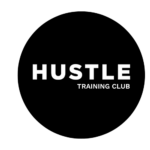You’ve made changes to your diet. Have swapped the lunchtime packet of crisps to nuts. You’re cooking wholegrain pasta for dinner instead of white. You’ve tried so hard to start eating healthier yet you are still not seeing the results you want. The number on the scale just isn’t budging and you can’t figure out why!
Let us tell you the secret you need to lose weight…
YOU NEED TO START WEIGHING YOUR FOODS.
“But, why?”
If you have made the swap to healthier foods but are not seeing results, this is the next step to take. We’re guessing most of you have heard that a portion of chicken, fish or meat is the size of your palm of your hand. The problem with that? We don’t all have the same size hand. So if you want to step things up a notch weighing your food is the place to start. From experience we have seen that most of our clients prefer this to calorie counting so that’s why we recommend it. Read here how one of our Hustlers, Breda, learned about portion control to help achieve her goals.
If you eat too much of so called ‘healthy’ foods you won’t lose weight, that’s why having an understanding of portion size is important to help you succeed with your goals. Take oats for example. Oats are an excellent breakfast choice and you may think that just because they are healthy that you don’t need to weigh them, but you do. There is a big difference in a standard 40g serving of oats compared to a large bowl where you just throw the oats in and hope for the best. It could be as much as a couple of hundred calories. Now don’t even get us started on granola! Again this is promoted as a ‘healthy’ food, but we would like to argue that this is not the case.
A 30g serving of granola will have about 140 kcals but believe us this is a pretty small bowl. Most people would easily have double or triple that amount and could end up eating 450-500kcals from a bowl of ‘healthy’ breakfast cereal. If you are trying to gain weight granola is great. But outside of that it is a perfect example of a food that you need to weigh just to see what an actual portion looks like.
Do I have to weigh my food forever?!
No, of course not!
However, we strongly feel that at the start of any weight loss journey it is a good idea to weigh your food even for a week or two to educate yourself on what 120g of chicken looks like, or what 15g of nut butter is (it’s definitely less than you think!!)
After weighing and measuring your food for a few weeks you’ll be able to eyeball portion sizes more accurately. Plus weighing your food for a period of time will also make it easier to recognise appropriate sized portions when eating out in restaurants.
How do I start weighing my food?
Tip 1
If you don’t have one already buy yourself a set of kitchen scales. You don’t need super fancy ones or ones that sync to your phone. Buy a basic set of scales that don’t cost a fortune and they will do the job nicely. For ease and accuracy, choose for a digital scale with a tally function.
Tip 2
If you are unsure about what a portion is or how much of a particular food you should be eating reach out to someone that can help. We educate all our clients on correct portions and adjust and adapt our advice as their goals change.
Tip 3
Set the plate or the bowl on the scale and every time you go to weigh a food make sure to zero the scale. You will be able to do this using the tare/zero button between measurements.
Tip 4
Focus on weighing calorie dense foods such as fats, carbohydrates and protein. We are not too concerned if you overeat on spinach!
Tip 5
Weigh everything before you cook it ideally.
Tip 6
In between uses wipe the weighing scales to prevent the build-up of any food residue.
Not everyone wants to weigh the foods they eat and in some cases it isn’t recommended. If you struggle with your relationship with food or have experienced disordered eating in the past weighing all your food may not help you progress right now. You are the only person that can decide if it will help or hinder your goals.
If you would like some help or advice please click here or complete the contact form below and we would be happy to help!
